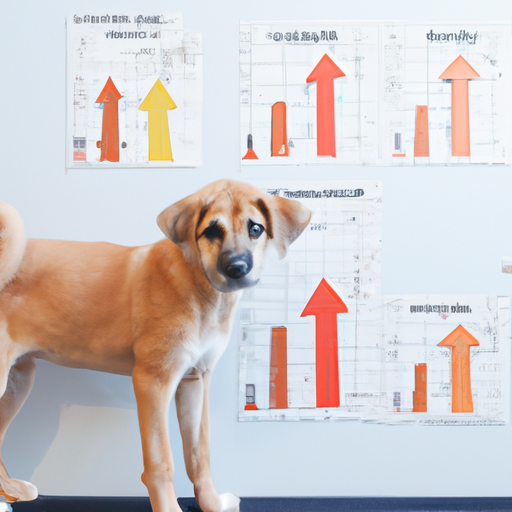As a caregiver of a little furball, you might be keen to know, “When does a puppy stop growing?” Understanding the growth stages of your puppy is incredibly important for their overall health and well-being.
Understanding Puppy Growth Stages
Your puppy’s growth journey is not a simple climb from birth to adulthood. There are multiple stages in puppyhood, each with distinct physical and behavioral changes.
- Neonatal Period (0-2 Weeks): Newborn puppies are incredibly fragile. They are born with closed eyes and ears, and rely entirely on their mother for survival.
- Transitional Period (2-4 Weeks): Puppies begin to interact more with their environment and their littermates.
- Socialization Period (4-12 Weeks): This is the prime time for puppies to learn about their world and how to interact with others.
- Juvenile Period (3-6 Months): Puppies will start to look and act more like adult dogs during this stage.
- Adolescence (6-18 Months): This is the puppy equivalent of the teenage years. Expect some challenging behavior!
Factors Influencing Puppy Growth
Several factors influence when a puppy stops growing. These include:
- Breed: Larger breeds typically take longer to reach their full size compared to smaller breeds.
- Nutrition: A well-balanced diet is crucial for healthy growth.
- Genetics: The genes inherited from the puppy’s parents play a significant role in determining growth rate and adult size.
The following table gives an approximate idea of when different breeds reach their full size:
| Breed Size | Age at which Growth Stops |
|---|---|
| Small Breeds | 6-8 months |
| Medium Breeds | 12 months |
| Large Breeds | 18-24 months |
Spotting Signs of Growth
How do you know if your puppy is still growing? Look out for these signs:
- Weight Gain: Regular weight checks can help you track your puppy’s growth.
- Height Increase: Your puppy growing taller is another clear sign.
- Teething: Puppies get their adult teeth between 4 and 7 months of age.
- Behavioral Changes: As puppies grow, they go through various behavioral stages.
Feeding a Growing Puppy
When your puppy is growing, they need a diet packed with all the necessary nutrients. Here’s what you should consider:
- High-Quality Puppy Food: Choose a diet specially formulated for puppies.
- Protein: Protein is essential for building and repairing tissues.
- Calcium and Phosphorus: These minerals are critical for bone development.
- Fats: Fats provide energy and help absorb vitamins.
Puppy Growth Problems
Sometimes, puppies can encounter growth problems. As a caregiver, you must be vigilant for signs of these issues:
- Overnutrition: Overfeeding can lead to obesity, which can cause various health problems.
- Undernutrition: Insufficient nutrients can stunt growth and cause developmental issues.
- Developmental Orthopedic Diseases (DODs): These are a group of conditions that affect bone development in puppies.
Tracking Your Puppy’s Growth
It’s a good idea to track your puppy’s growth to ensure they are developing normally. Here’s how:
- Regular Vet Checks: Your vet can monitor your puppy’s growth and advise you on any concerns.
- Growth Charts: Use a growth chart specific to your puppy’s breed.
- Photographs: Regular photographs can help you visually track your puppy’s development.
FAQ
Q: When do puppies stop growing?
A: It depends on the breed. Small breeds typically stop growing around 6-8 months, medium breeds around 12 months, and large breeds around 18-24 months.
Q: How can I tell if my puppy is still growing?
A: Signs that your puppy is still growing include weight gain, height increase, teething, and behavioral changes.
Q: What should I feed a growing puppy?
A: Feed your puppy a high-quality diet formulated for puppies. This should include protein, calcium and phosphorus, and fats.
Q: What are some growth problems puppies can have?
A: Puppies can encounter growth problems like overnutrition, undernutrition, and developmental orthopedic diseases.
Q: How can I track my puppy’s growth?
A: Regular vet checks, using a breed-specific growth chart, and taking regular photographs can help you track your puppy’s growth.
Remember, every puppy is unique and might not adhere strictly to these guidelines. Embrace the journey, and enjoy watching your furry friend grow into a healthy, happy adult.



